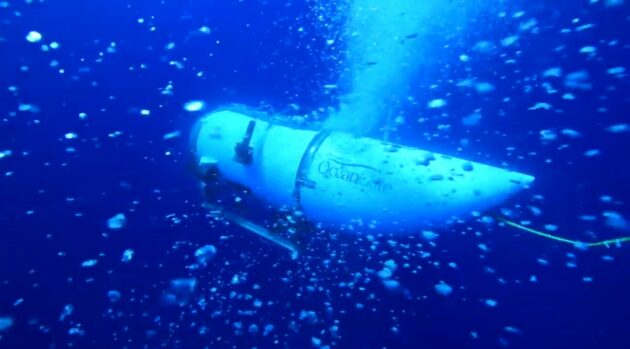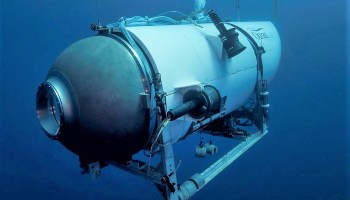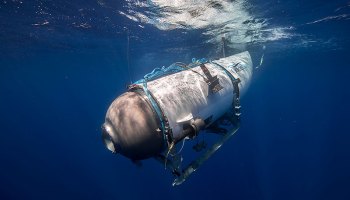
The chairman of the Coast Guard investigation panel for last year’s loss of OceanGate’s Titan submersible says his team has “found no evidence” that crew members knew about their peril.
In the wake of the tragedy, a purported transcript of communications during Titan’s final dive included increasingly desperate references to an alarm aboard the sub. But Jason Neubauer, the chairman of the Coast Guard’s Marine Board of Investigation, told The New York Times that the document “was made up.”
That conclusion is based on a review of the actual messages between Titan and its mothership as the sub descended toward the wreck of the Titanic in the North Atlantic on June 18, 2023. Although that true transcript has not yet been released, Neubauer’s comments support the view that the five crew members died virtually instantaneously in the violent implosion of Titan’s carbon composite hull.
Neubauer told the Times that he hoped the truth would console relatives of the crew who may have worried that their loved ones suffered in their last moments. The crew included pilot Stockton Rush, co-founder and CEO of Everett, Wash.-based OceanGate; Titanic expert P.H. Nargeolet; Hamish Harding, a British aviation executive and citizen explorer; and Pakistani-born business executive Shahzada Dawood and his son, Suleman.
The original source of the fake transcript is not known, but it was widely distributed in the weeks after the tragedy.
For nearly a year, Neubauer and his fellow investigators have been sifting through records as well as evidence recovered from the bottom of the sea to reconstruct the events leading up to Titan’s loss, determine the causes of the tragedy and recommendations for further action.
OceanGate suspended all exploration and commercial operations two weeks after Titan’s loss was confirmed, and appointed a new CEO — veteran Seattle tech executive Gordon Gardiner — to oversee the company’s shutdown.
In other developments:
- The Coast Guard memo setting up the investigative board called for a final report to be filed within a year. However, Neubauer told the Times that the OceanGate inquiry is unusually complex, due to the nature of the evidence and the jurisdictional complexities. He suggested that it might take two or three years to complete the report. Investigators are due to discuss their findings at a public hearing, but the timing of that hearing hasn’t been set.
- An investigative report based on previously undisclosed email records and published by Wired traces the technical problems that OceanGate encountered during Titan’s development — problems that were largely hidden from public scrutiny. The report touches on the roles that Boeing and the University of Washington played during OceanGate’s early years, and details how OceanGate CEO Stockton Rush glossed over the vessel’s shortcomings.



